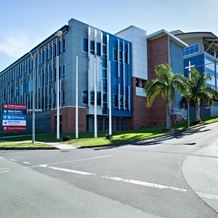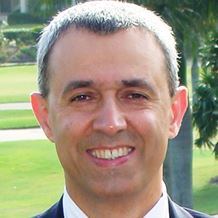Rising to the challenge: a mountain climbing surgeon and his mountain biking patient
- Home
- Patient News
- Rising to the challenge: a mountain climbing surgeon and his mountain biking patient
It was February 2021. Waking up in intensive care with tubes and monitors attached to what seemed like every place possible, Graeme Fulton was on the starting line of the recovery from his second open heart surgery.
The serious challenge Graeme, aged just 44, had faced all of his life was a congenital heart valve defect. The notion of competing in the toughest mountain bike race in North America was the furthest thing from his mind, and for very good reason.
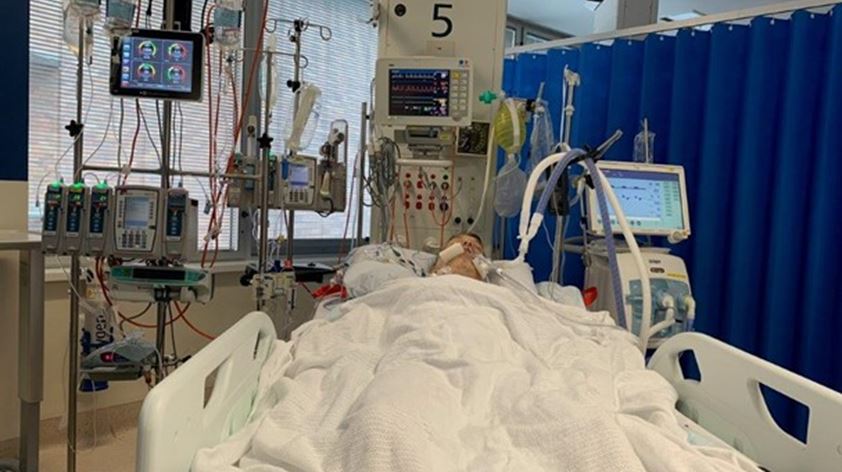
Despite the congenital heart defect being diagnosed when he was a toddler, Graeme had been an active child who played a variety of sports but never really excelled in any athletic pursuit. He found his calling in karate for a number of years and subsequently, later in his teenage years, in running and triathlons.
But the spectre of surgery for a leaking aortic valve always loomed in those early years, and that day eventually arrived in 1995. When Graeme was aged 18, he required a valve replacement with donor tissue valve. This enabled him to resume a healthy and active life, relatively risk-free.
Encouraged by friends, and propelled by a desire to test the limits of his ‘refurbished heart and valve’ he utilised his 20s and 30s to run a marathon and complete a number of ironman triathlons. Eventually – the decade-plus training journey culminated in the ultimate multi-discipline endurance event in 2008, the Hawaii Ironman (a 3.86km swim, 180km bike ride and 42.2km marathon run.)
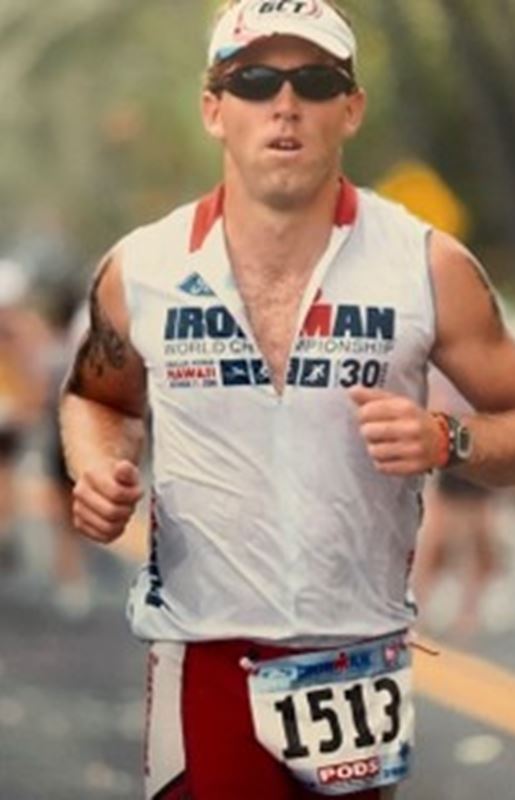
“I was always relatively fit, enjoyed the activity of exercise and the challenges that came with it - but I was never near the front of the field,” says Graeme. He admits his place in the sports pecking order, “hasn’t really changed over the years but I embrace the joy of just competing.”
“It was great to be fit and healthy and I just appreciated the fact that I was a kid/guy who had a congenital heart defect and was told to never enter a marathon. Yet, when I eventually did in 2006 (at the age of 29), I managed a placing in the top 10% of the field.
“It can be tempting to put limits on yourself when you’ve had any major surgery (especially heart surgery). And I totally understand that it’s vitally important to seek out and heed medical advice – likewise, it’s important to listen to your body and just ‘get out and have a go and see what happens!’”
Graeme had also ventured into mountain bike riding post triathlons/marathons and while the 10-year life cycle on his valve was nearing its end (after 26 years!), he kept downplaying and dismissing the suggested need and urgency for another operation.
Eventually, fatigue and poorer recovery from the longer events and hard training sessions started to become more commonplace around 2020. Graeme knew it was time to review his health status and with support from his cardiologist, he was sent to St Vincent’s Private Hospital Northside and a consultation with highly respected cardio-thoracic surgeon, Dr Homayoun Jalali.
“He gave me an appointment on Christmas Day, 2020 (an additional out-of-session clinic) and the news was not what I was expecting,” says Graeme.
“I was shocked … blindsided and I nearly burst into tears. I wasn’t ready for his assessment, that I needed another heart operation and soon. Anyone who tells you they wouldn’t be shocked when you receive such stark news as - ‘If you don’t have surgery, your heart will fail and you may die and soon!’ – is lying.
“We talked for an hour at this appointment and for another hour at a follow up appointment at a later date - but it helped with him using such a simple analogy as ‘ It’s like a car leaking oil and never being checked - eventually it will fail - the same as your valve’.”
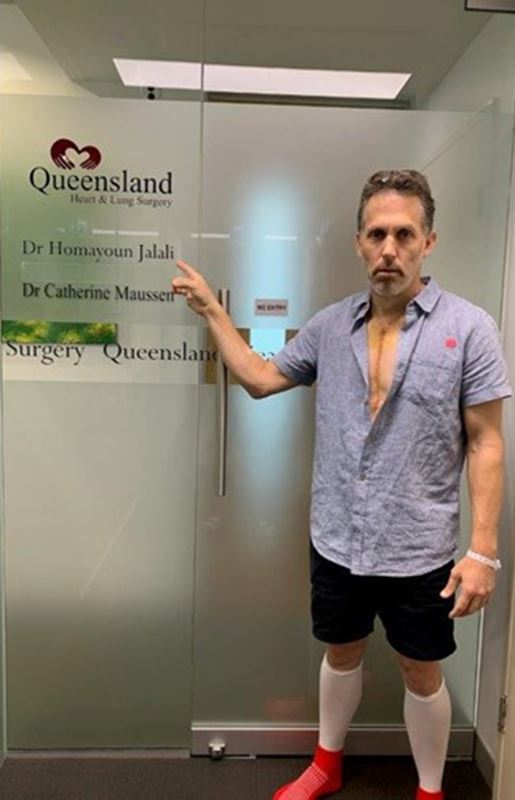
Of course, this hit home. But Graeme was still reluctant and apprehensive (as he had been for a long time), discussing with Dr Jalali the various surgical options. From December to February 2022, Graeme says, he researched day and night, every website/link/seminar on secondary heart valve replacement options and issues.
“Throughout my admittedly amateurish and emotional queries, Dr Jalali was fantastic. He was so thoughtful and understanding in addressing all of my concerns and in the lead-up to surgery,” says Graeme.
“He had the utmost professional and caring approach (I think my family came to love him as much as me!!) I tried my persuasive best to twist his arm about the various surgical options and what I thought was best from my research. He was always willing to listen to my views and also to discuss it with his peers.
“One option we discussed was the ‘Ross Procedure’ which can only be provided by a few surgeons in Australia, including Dr Jalali. He said that procedure was an option for me but due to the nature of the first operation I’d had in 1995, it could have involved increased risk.
“I eventually left the decision of the best procedure entirely in his hands and to trust his knowledge and expertise. The operation was a success. I recovered quickly - as I had the first time, which was amazing given I was now 26 years older. Similar to the first time, I managed to get back on the bike within four to weeks which was very important to me.”
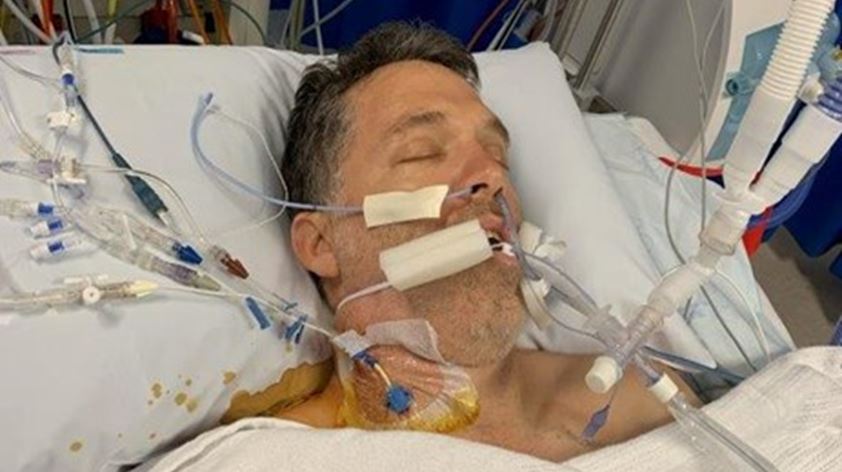
Dr Jalali, a Belgian and Australian citizen of Persian origin who spent 16 years in general medical and specialist training in Belgium, the US and UK, says Graeme’s heart (aortic) valve was noticeably worse than what he thought it would be. The timing of the operation was critical with his heart enlarged and swollen and under threat of serious failure.
“Graeme had done very well to last so long with all of the endurance events he had done over the years, but it was very important that he saw me and we reviewed everything as there was a danger that he could have had a life-threatening failure within his heart at some stage soon,” says Dr Jalali.
“All surgical options including the Ross Procedure were considered intraoperatively and ultimately the best option for Graeme was for me to explant his degenerative homograft and perform a redo root replacement.”
Having won the lottery of life for a second time. Graeme again embraced his lust for a challenge, entering the ‘sports lottery’ of applying to gain entry to the event they class as ‘the toughest mountain bike race in North America’. The Leadville Trail 100 is a 105 mile/ 170km mountain bike race through the Colorado Rockies, with a 12-hour finishing cut-off time that riders have to meet otherwise they’re disqualified.

And that seemingly crazy dream – to follow in the bike tracks of a former 2010 race winner named Lance Armstrong (yes, that one) – saw him ramp up his training and hit the trails around south-east Queensland to prepare for yet-another extremely challenging event. When he flew to Colorado in August, 2022, it had been just 16 months since major open heart surgery.
“Because I’m on blood thinners after the second heart operation, I had to be mindful of not falling off and causing a cut or wound where it can be hard to stem the bleeding,” says Graeme.
“That was one of the warnings from Dr Jalali who also said: ‘Would I advise a family member to do this race? ‘NO’! - and the same advice applies for you. But it seems you are going to do it regardless!
“The Leadville 100 was incredibly tough, as it’s all at altitude. It starts in the town of Leadville 10,152 ft (around 3000m) above sea level and rises over 1000 metres several times to almost 4000m. My aim was to finish, regardless of the time. Just make the cut-off, which I did in 10 hours 14 minutes (just over 4hrs behind the winner!). I placed in the top 500 of 1500 starters and I could not have been happier.
“A 10 hour-plus bike ride at altitude is not something most people would or should want to do post-open heart surgery. But I want people to know and to believe, that life isn’t over after heart surgery or any major surgery. Anything is possible. It’s not the end – just the beginning. Be cautious, but go and live life!
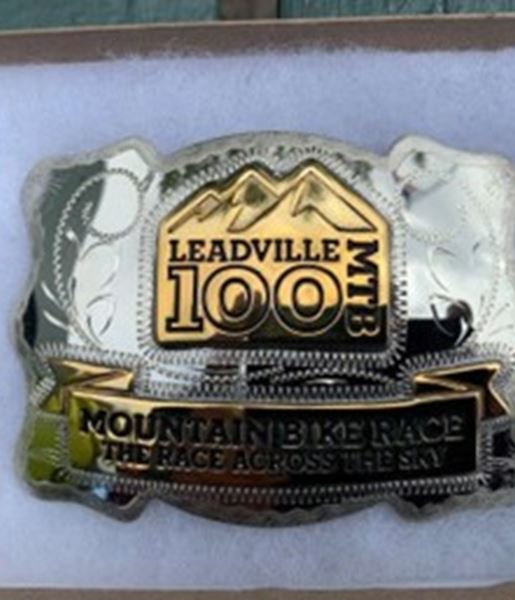
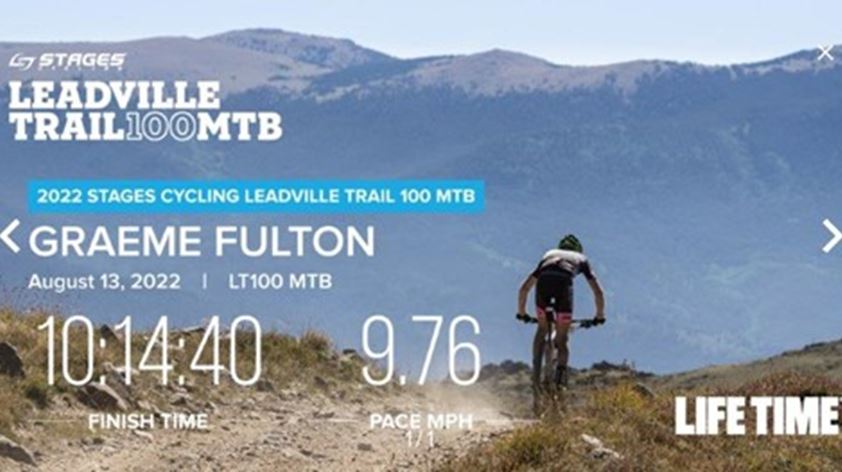
“The incredible treatment that I received at the hands of Dr Jalali (who came with the highest of recommendations) and the post-surgical care from the wonderful, caring team at St Vincent’s Private Hospital Northside was amazing.
“I can’t speak highly enough of the entire team. Without them all (and my family and friends), I doubt I would be here today, let alone having been restored to a state of health and fitness where I could train for and finish the Leadville 100! I’m eternally grateful in every way possible.”
Dr Jalali says he could relate to Graeme’s ambitions, as he was someone who also loved a physical challenge.
“My passion is mountain climbing – so I can really relate to Graeme’s love for competing in tough, endurance events and tackling challenges that are difficult both physically and emotionally,” says Dr Jalali.
The cardio-thoracic surgeon has climbed six of the world’s seven tallest summits, starting with Mt Kilimanjaro around 20 years ago with some old friends from medical school. Every couple of years since then, a core group has looked for a new mountain to summit, in what Dr Jalali says is an important part of his routine in trying to reset his mind and body from the pressures of his work of performing complex lifesaving surgery every week.
“The mountain challenge has a lot of similarities with open heart surgery because both are tasks for which you must carefully and diligently prepare. Meticulous execution and safety are paramount. And there’s several steps to a successful outcome – difficulties and challenges – both physical and mental,” says Dr Jalali.
“And if you have done all the work and been methodical and reached the summit (like successfully completing the surgical task), then you have to come down safely from the mountain which is like being attentive and meticulous in your post-operative care for a patient.
“Also, when you climb a high altitude mountain, you have to be part of a team – the same as you do in a hospital. You’re not going to work with a team that doesn’t have the skill to climb that specific mountain, and you’re not going to do a procedure for which you and the hospital team haven’t been properly trained for.
“When you do a mountain expedition, you have to carry up everything with you to survive – and even bring all your waste back with you. You sleep on the hard ground in the wilderness, away from the usual comforts. So that just resets you also as a person – just getting grounded again and totally detached from everything else. The mountain has a way of teaching you humility.”
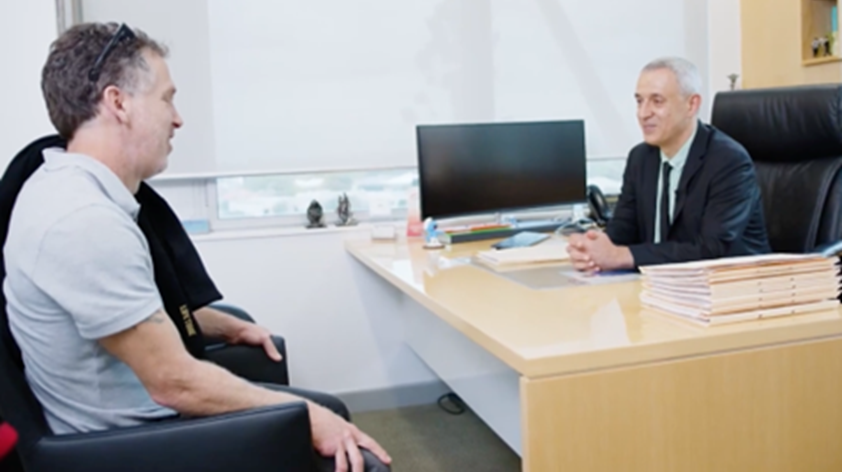
Recently, St Vincent’s Private Hospital Northside helped to organise a reunion between doctor and patient. Graeme had emailed Dr Jalali to tell him about his Leadville Race exploits in September. And when they met again, the bond and mutual admiration between them was apparent.
Graeme was effusive in his gratitude for Dr Jalali’s lifesaving skill and the humanity and empathy he shows to patients in his care.
In return, Dr Jalali marvelled at Graeme’s incredible determination, dedication, resilience and sheer toughness in finishing the gruelling bike race and in living his life large after surgery.
“All we can do is to give you a better engine, but what you choose to do with that engine and your car and take it in a Formula 1 race (or more precisely, put your body on a bike and ride it through the mountains) is fantastic and a huge credit to you to be able to do that successfully,” says Dr Jalali.
With a lifelong passion for sport, Graeme found his own best analogy for Dr Jalali in one of his sports heroes and the man, most widely regarded as the greatest to ever play tennis.
“Dr Jalali is like the Roger Federer of heart surgery – he’s all class, he’s the best at what he does and he’s a true gentleman who brings pride and honour to his profession. Where he differs (from Federer) is that he has the power to grant a new lease on life to patients,” says Graeme.

